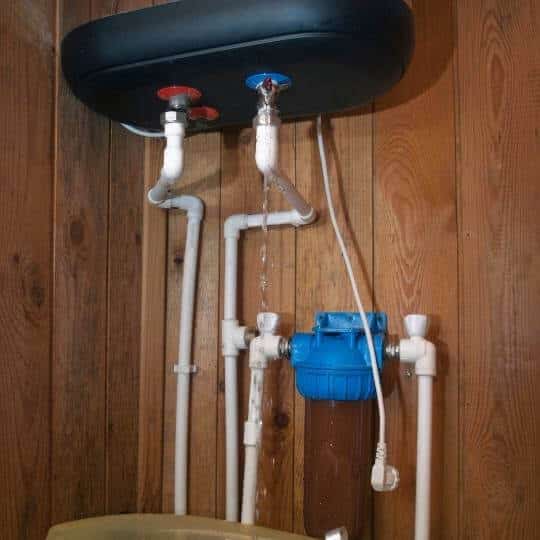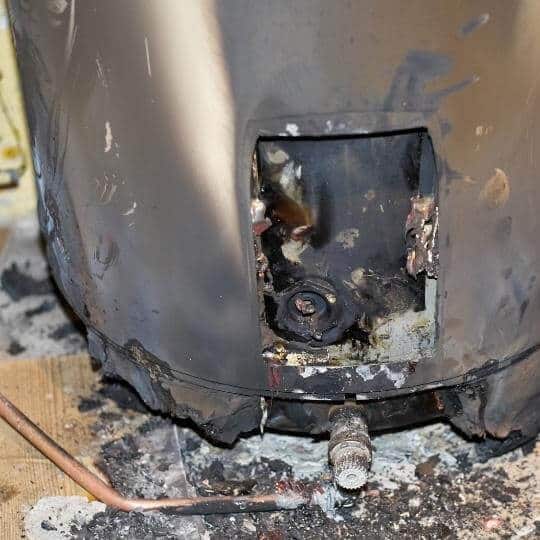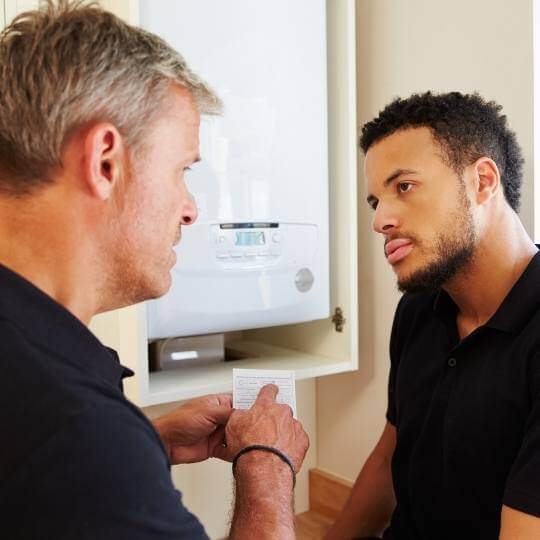Can I take a shower if my water heater is leaking? How big is a risk?
When plumbing is operating correctly using our bathroom is a rather standard affair. However, it isn’t unlikely that we’ll end up in a situation where our plumbing is compromised and needs more attention. One such would be a leaky water heater which can leave us with a question: can i take a shower if my water heater is leaking.
It can be hard to distinguish when something is off, we will usually note it when turning the water on. The leaks usually start as minor before escalating so it’s more likely than not that you’ll notice them before they become dangerous.
This means that it’s still very much possible to take a shower even before fixing the water heater. Of course, you should still take actions to resolve the leak as soon as possible, before it escalates into a big one. The water heater leaks can occur on valves or deliver pipes so it’s good to check those if you have quick access to the pipes.
However, it’s also good to know other causes of water heater leaks so you can reduce the chances of leaks occurring.
What causes a hot water heater to leak?

The issues that can cause your water heater to leak are plentiful and can vary from small to devastating, some even requiring an entirely new heater. Let’s go over some to get a better grasp on their impact.
- Water pressure
Too much pressure is one of the most common issues that could compromise your pipes. Plumbing installations overall can endure troubles with water pressure because of its ability to change rapidly.
As far as water heaters go, there’re additional factors that go into the issue escalating to the point of leaks. Water heaters create steam and fill up empty spaces, as steam accumulates and runs out of space to spread out through, the pressure becomes too potent.
The leaks will happen due to steam and water pushing outwards in order to relieve some pressure. The higher the water temperature and the higher the water pressure, the worse our issues with heat pressure will be. [1]
- Loose drain valve
Another issue we could have could be with the drain valve loosening up. Usually, when a tank needs to be drained it’s rather simple to use the drain valve to empty it with little issue. However, the valve will get looser over time until it becomes incapable of properly stopping water, which results in leaks. By becoming weaker, the drain valve loses its watertight quality. Replacing them is mandatory if this comes to pass but said replacement can be easily done. [2]
- Loosened connections
Another issue of parts loosening can come from inlet and outlet connections. The inlet connection does the job of delivering cold water while the outlet one is the connection that delivers water to our showers and taps. Both of these are rather resistant to malfunctions, except for loosening. The issue of loosened inlet or outlet connection will cause leaks so if some of the more standard concerns don’t seem to resolve the issue, definitely take a peek at the connections.
- Accumulation of sediment
The issue of sediment collecting within our water heaters is one we’ll eventually face when owning the same water heater for a long period of time. Sediment collection can result in cracks which are followed by water leaks. The tank leaks are one of the most devastating forms of leaks as they require a whole new water heater. Thankfully, these can be prevented by regularly cleaning out sediment from water heaters, thus preventing the accumulation of sediment.
- Old age
Sometimes the problem is just a simple fact of age. As the water heater ages, it becomes less functional and more susceptible to leaks. It’s not simply age that damages our water heater, it’s the corrosion that causes the issues. Sadly, corrosion is inevitable and water heaters will eventually reach the end of their lifespan. When your leaks stem from the issue of an old water heater, the only thing you can do is replace it. [3]
- Physical impact
Water tanks can get cracked from physical impacts too. Sometimes damage comes from outside sources and damages the water tank. Although the situation may be salvageable, some cases will require the complete replacement of our water tank.
Is water heater leaking dangerous?

The answer to this is definitely yes. While the initial leaks could cause minor problems, they could ramp up to the point where our water heater could explode. When this happens, all the hot water within it will spill out into our homes and significantly endanger anybody currently in it while doing serious structural damage.
That’s why detection and repair should be done as soon as possible, otherwise you risk extremely high cleanup costs.
The dangers water leaks pose don’t stop at water damage. Depending on the type of water heater you may encounter gas leaks as well. Gas water heaters are a great way to save money and get great efficiency from your heater but the aforementioned causes of water leaks could result in gas leaks as well. If you assume a gas leak could be happening, turn off the gas with the dedicated valve.
Can I take a shower if my water heater is leaking if a gas leak does occur?
Due to this situation potentially being hazardous, it’s best to call professionals immediately. Make sure the gas valve has been firmly shut and call in a professional. While some may be tempted to DIY their way when it comes to gas leaks, it’s best not to take risks as they could pose serious hazards.
What to do if the water heater is leaking?

If you suspect a leak it’s paramount that you take some measures against it early.
- Detect where the leak is
The key part of resolving an issue is locating it in the first place. There could even be multiple leaks so it’s best to check each possible source to make sure we are fully clear of issues.
We’ve already covered the causes before, now all you have to do is check those areas for leaks to locate where the issue is located.
- Turn off the power and drain the tank
The next step should always be to shut the water heater off. If it’s an electric water heater, turn it off by using the circuit breaker box. Locate the correct breaker and turn it off, make sure you have properly cut off any potential electricity. Water conducts electricity so you don’t want to be working around water heaters with electricity potentially coming through the wires.
As for the gas heaters, you just need to turn off the valve or whatever form of cutting off power that your gas water heater has.
After turning the power off, go ahead and drain the tank itself. This is an important factor in locating and troubleshooting issues because it gives better clarity of the entire heater. Of course, as we’ve mentioned before, if there’s a potential gas leak too we recommend calling in professionals immediately.
Lastly, you may be wondering can you still use water if the water heater is off. The answer is yes, although you’ll only have access to cold water. However, consider that the issue may not be localized to the water heater so be careful with water use.
- Close off the water supply
We don’t want water flowing back into the water heater after we’ve drained it so the next step is to shut off water supply. [4]You want to shut down the cold water pipe first because it’s the one that flows into the water heater.
That will prevent water from flowing into the heater and should be relatively easy if you can reach the valve yourself.
- Call in professionals
If you notice some significant water heater danger signs it would be best to call in professionals immediately. They can do deeper checks and uncover bigger issues as well if those exist. Of course, look into the available services around your area to make sure you are getting the best deal for your water heater fixing needs and any other plumbing issues you may run into now or at a later date.
Conclusion
So can you still use water if water heater is leaking? Yes, but it does come with a few caveats laid out above. Of course, resolving the issue should be your primary concern due to the way these issues usually escalate. If your problem is one of age and you need to replace the item with a new one, we recommend checking out some comparisons to maximize the benefit you get from your investment.
Disclaimer: Every leaking case is different, make sure that you always contact proffesionals plumbers in your area!

Michael Davis is a heating & plumbing expert who currently works as independent contractor in SC. He also writes for Plumbertip.
For almost 10 years he worked on various plumbing tasks across South Carolina.


